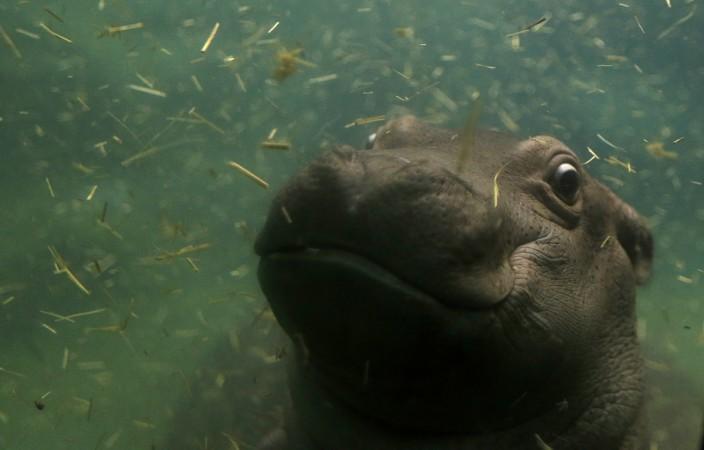
Hippopotami are among the largest land mammals in the world and unsurprisingly, they excrete a lot of dung. The only problem is that the sheer quantity of excrement they put out on a daily basis causes a bit of trouble for fish and other aquatic life in the water.
The mammals, known to stay submerged for long hours, excrete directly into the water - an action that seems relatively harmless but one that has been found to disrupt the aquatic ecosystem.
Researchers working along the border between Kenya and Tanzania found that, in certain parts of the year, when water levels rose by a few feet in the river, hundreds, sometimes thousands of fish float and wash up dead along the banks, reports the Atlantic.
Local rangers often chalked it up to farmers spraying pesticides in the water, but researchers Chris Dutton and Amanda Subalusky, who stumbled upon this scene realized that there was much more to this than pesticides. They studied the phenomenon over the following months and discovered an unforeseen cause - hippos.
Hippopotami are known to graze the grasslands at night and return to the water during the day, to cool down and protect their skin from sunburn. They also stay safe in the water, as they gather in herds in the sunlight, notes the report. Staying submerged in the water for long hours, they are known to defecate and urinate almost through the day, slowly digesting the food they ingested at night.
In the Mara region alone, there are about 4,000 hippos leave about 8,500 kg of dung in the waters within a stretch of about 100 km. Hippo feces are everywhere, says Dutton.
Down at the bridge, you can put a net in the water for a few seconds, and the entire middle will just be coated with hippo feces. There's hippo feces everywhere. Over the rocks. Over the bottom.
Over the dry African summers, some parts of this stretch witnesses a drop in the water level. The river water gets saturated with fecal matter of the hippos that spend long hours submerged, note the researchers. Hippopotami are aggressive and dangerous animals so the researchers, instead of going directly to the water, used a drone boat armed with a wide array of science equipment and sensors to collect samples.
What they found was staggering - the sheer volume of dung in the river had turned the water into a thick mass of hydrogen sulfide, ammonia, methane, and other toxic chemical nasties. Also, there was no oxygen.
A large quantity of the oxygen was consumed by bacteria to digest the poop and break it down to all the aforementioned chemicals.
When the rains come back, it churns up all this muck and sends it flowing downstream, the researchers found. The phenomenon is called "flushing flows." When the putrefying water is flushed out of the hippo pools, they dramatically reduce the oxygen level in the water downstream. It drops so much that aquatic animals often choke out and die.
The study was first published in the journal Nature, titled "Organic matter loading by hippopotami causes subsidy overload resulting in downstream hypoxia and fish kills."
















